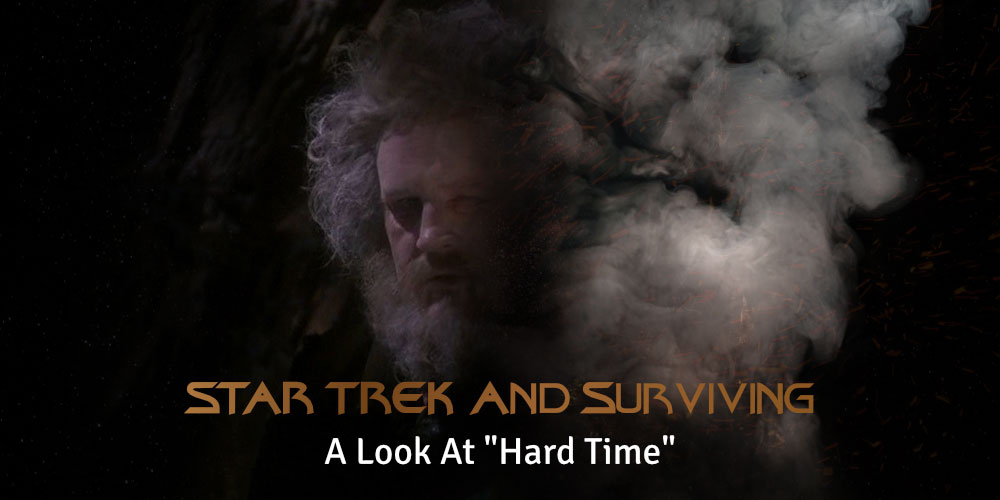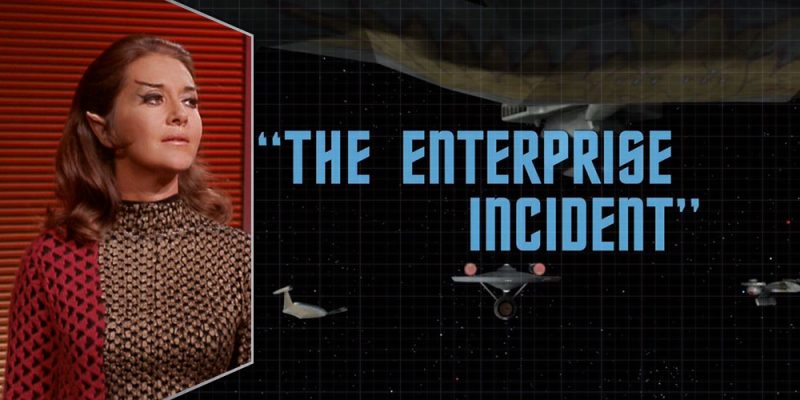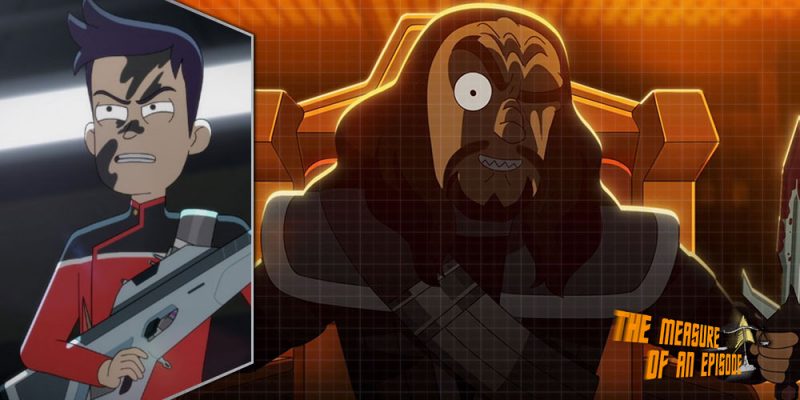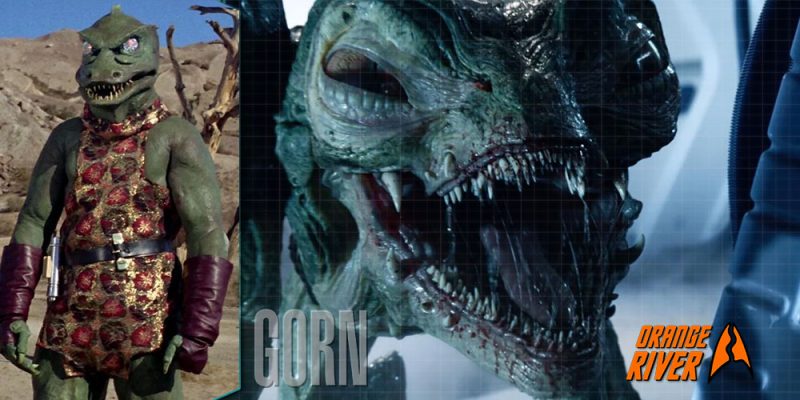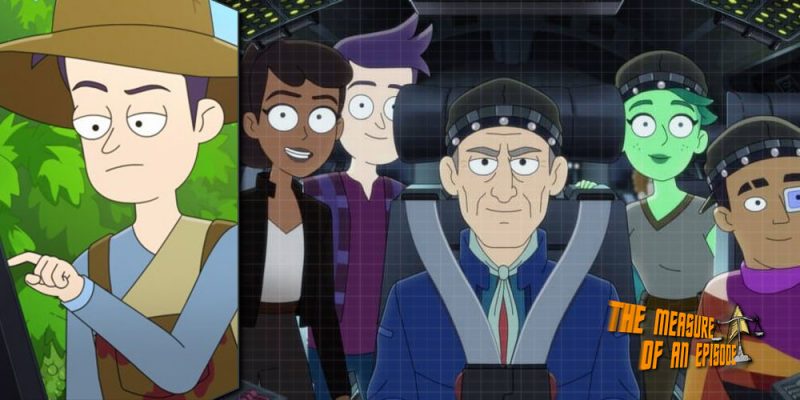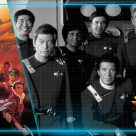My dears and queers, welcome to tonight’s discussion. Before we get started however, let’s just get something covered, this is going to be a heavy one. There will be discussions of mental health, assault, falsified realities, post traumatic stress disorder, and suicide. If that’s something you’re uncomfortable with, maybe sit this one out, it’s a bit of a ride.
For those of you who are with me, let’s get comfortable,
Our heroes in Star Trek are known for being able to put up with some serious and potentially deadly situations and come out pretty okay in the end. Look at Riker in TNG, duplicated, everything that happened in “Frame of Mind“, kidnapped and dragged off to a subspace reality, turned into a proto-caveman and do I even need to talk about what happens in “The Royale”? Blurgh. Now, this is of course the product of serialised television and how it was made back in the day. Characters had arcs, but really they were more when the writers back-peddled on certain aspects of a personality and pushed forwards with others, like dialling down the annoying in Julian but a good 80 per cent.
I joke of course, but television has changed, characters have changed, we see a lot of different responses to different situations. New trek is known for being dark and gritty and ultra real in its depictions of suffering.
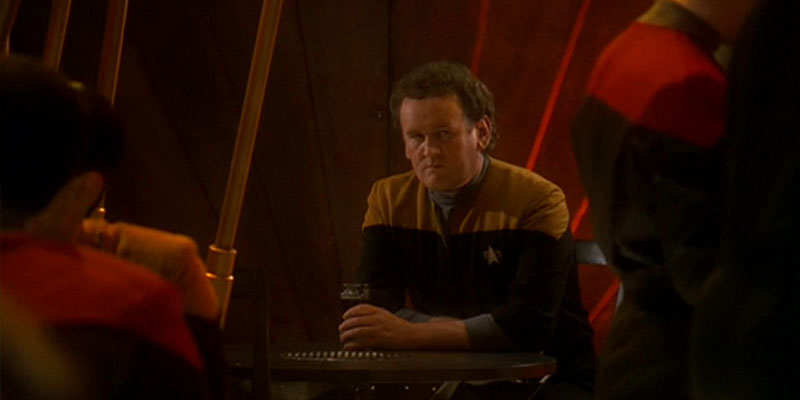
Something old Trek never did. Or did it?
Enter Chief Petty Officer Miles Edward O’Brien. Husband, father, engineer, friend, problem solver, family man, and dammit, the toughest dude in Starfleet.
To say O’Brien suffers is an understatement. He has gone through the hardest of hard times in his life. He’s been a political prisoner multiple times, a duplicated, lost to time, died, held captive by the dominion more than once, and shot a hecking load of times. I mean, damn, that shoulder just will not stop dislocating. Thank god for 24th-century medicine.
Injuries are a strange thing in fiction, characters will suffer from all sorts of injuries they have been dealt, but they will always get better and get right back up before the credits even roll credits roll. Because they are our heroes, and that’s what heroes do best, they always get back up.
And Miles does that best, he’s been hurt a lot. But, he’s right back at it by next week. Ready to face the problems of the week, there’s nothing that man can’t solve. Unless perhaps, it’s the problem of the self.
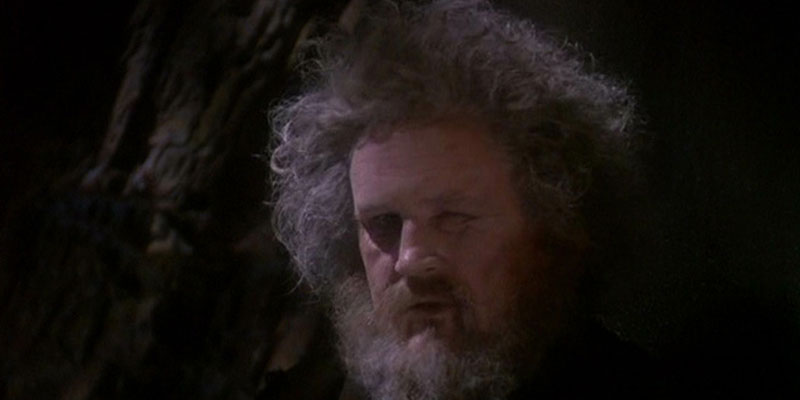
Hard Time.
So, to catch everyone up, Hard Time is the 19th episode of Series 4 in Deep Space Nine. Probably one of the strongest episodes from the series. Certainly in terms of acting from Colm Meany who carries the weight of the entire episode on his back.
The story focuses on Miles, having just come out of a simulated experience of a 20-year prison sentence for the crime of “Espionage” before the Federation could intervene, he is forced to live a simulated life in a single cell for 20 years with little food or company. It is a terrible and cruel experience.
The episode opens with Miles in the dregs of his uniform, hair matted and long, gently tracing shapes in the sand. When he finishes up, his door opens and two guards tell him he’s being released. He can’t quite comprehend the concept, he’s been in his room for 20 years and now, he’s being let go. Then the rug is pulled out from under our feet, as he is thrown back into the light, he wakes up next to Major Kira. None of it was real…but the impact it will have on his life in this episode will be real enough.
On returning to Deep Space Nine, O’Brien tries to adjust back to life onboard the station, but his experiences while imprisoned still trouble him. Although he tells Dr Bashir that he was alone in prison, flashbacks reveal to the audience that he had a cellmate, Ee’char, who taught him how to survive while incarcerated. He begins to exhibit habitual behaviours that he “picked up” while “incarcerated,” such as hoarding food and sleeping on the hard floor instead of his bed. Then, when questioned if he was alone all this time be beings to suffer from hallucinations of Ee’char.
Over time, O’Brien becomes increasingly irritable and more reclusive. He has an altercation with Bashir and assaults Quark when he has to wait to be served at Quark’s bar. Captain Sisko later relieves O’Brien of duty, placing him on medical leave and ordering him to attend the counselling sessions that he has been avoiding. After he returns to his quarters, he almost hits his daughter Molly when she tries to get his attention.
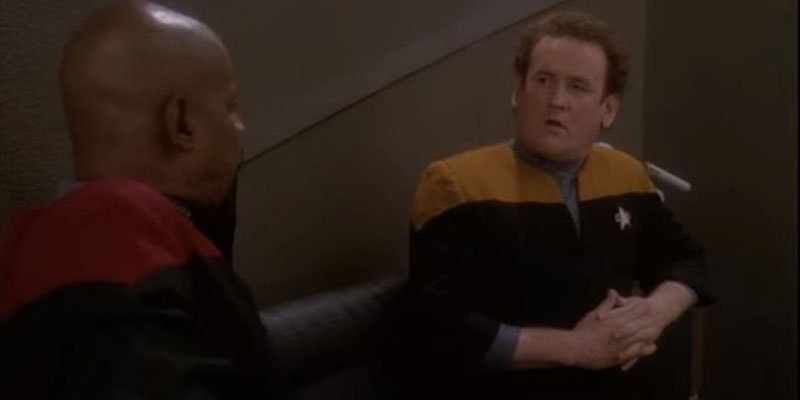
He flees to a cargo bay and starts to vent his anger and self-loathing by tearing the place apart. Eventually, he comes across a weapons locker, he sets a phaser on maximum, preparing to take his own life.
Bashir follows O’Brien and finds him just in time. O’Brien tells Bashir how he killed Ee’char over a few pieces of bread that he was saving for the both of them, and that the guilt has been eating away at his conscience. O’Brien is convinced he is an animal, but Bashir tells him that if he truly were, he would have felt no regret for killing Ee’char, and so O’Brien is still human deep down inside. Bashir ultimately prescribes a new course of heavy treatment and soon has O’Brien on the way to recovery.
In that last moment, O’Brien saw that he was becoming a violent man, angry with himself and fuelled with a loathing he could not comprehend. In a desperate act to stop his pain and to keep others “safe”. He was prepared to end his life.
It’s a heavy episode, and probably one of the most out of place within that specific era of Star Trek. The classic show rarely deals with mental health, to at least to the levels we see here. Miles goes through hell and back from start to finish, it’s a powerful force to be reckoned with. He sees the edge, and manages in the end, to take a step back. We even see him at the end of the episode with a hypospray of what I’m assuming is an anti-depressant. Which is a first as well, treatment for mental health that isn’t just talking to your local Betazoid? Of course, O’Brien gets better, there is no mention of these incidents in future episodes, though we know now that the character is changed from these events.
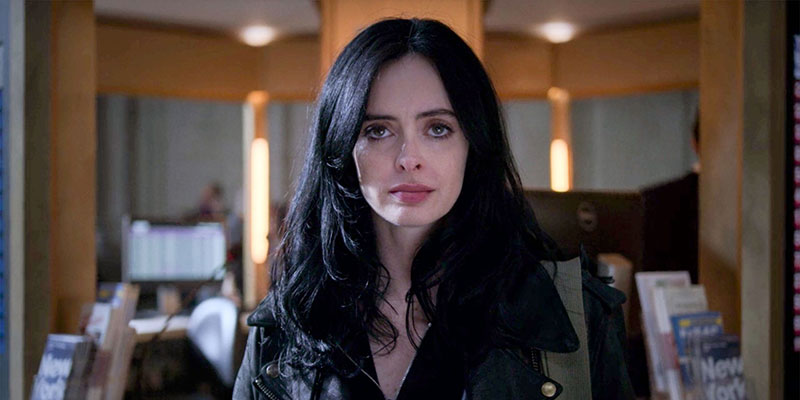
Depression.
Oh boy, this one is rough.
So, depressions depiction in television has gotten more nuanced and complex over the last few years. In fact, at the time of writing, probably the most important and memorable show happening right now is “Wandavision” a show about grief, how we cope and how it affects all of us. Wanda creates a world that while fantastical is still grounded in a form of grief, in a very powerful form of disassociation, trying to distance herself from that sorrow.
Another Marvel led series, “Jessica Jones” has the central theme of trauma and depression and a character who struggles with both. In an interview with Melissa Rosenberg, she told the Los Angeles Times:
“Playing them as honestly as possible was very much the objective from the beginning. The tone is meant to be very grounded and real, so you have to be very grounded and real with whatever subjects you’re dealing with. So there was no glossing this over. It was really an exploration of a survivor and her healing, to the degree that she does, in facing those demons quite literally.”
When we see O’Brien is trying to avoid his demons in “Hard Time”, he wants to distance himself from the events that caused him to hurt. He doesn’t want to see a councillor, he doesn’t want to talk about what happened to anyone. Eventually, he does face his demons, he does talk about what happened. But in the beginning, he wants what happened to be put in a box and never looked at. Though anyone who has ever suffered from any form of personal trauma or struggled with depression knows that what you throw away doesn’t always stay away.
It’s understandable though, lives become unwound, changed and reconstructed by something that is so complex it’s hard to take it in. So many people just want to embrace what they know, the normalcy of a familiar structure is something that we all want. Many people fear that by going back into therapy and talking about what happens they may force themselves to live through the trauma that hurt them in the first place.
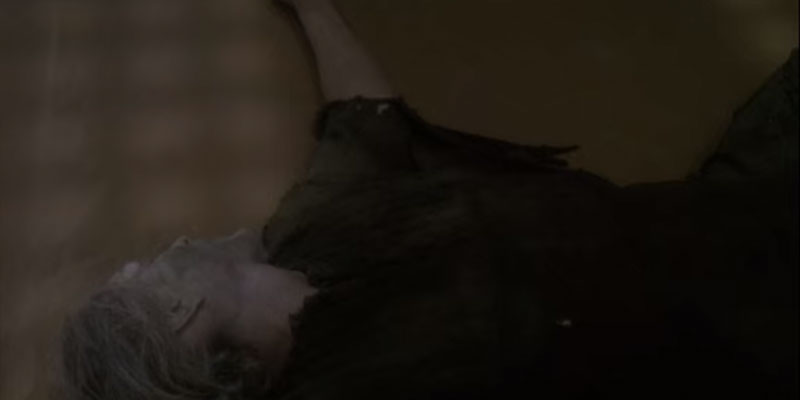
Or worse, be judged for what they did, or be perceived as weak for being unable to cope. It’s sometimes a difficult road to follow because we have to look ourselves in the mirror and say, “Yes, this happened” and sometimes it can be because of toxic behaviours that hurt ourselves that we need to come to terms with, or sometimes it’s even worse, we believe that these things happened because of some sort of failing as a person and to examine the events of what happened to us means looking at ourselves, and if we are to feel that our personhood is toxic, we may go no further than scratching the surface to uncover a deeper and complex truth. Whatever it was, it wasn’t our fault.
However, Miles blames himself for the death of Ee’char, even though it’s was never real, the memory was fabricated. It was real to him. And the emotional weight it has was real to him. Ee’char is hanging around with him for most of the episode as a hallucination. Now, this could very well be an artistic shorthand for Miles to work through his feelings and because the scenes between Colm Meany and Craig Wasson are great to watch. But within the story, it becomes the simple act of giving someone the chance to confront their guilt.
Ee’Char is a personification of Miles’s regret in all those years alone. But that guilt just wants Miles to be okay, in the end, Ee’Char only vanishes once miles asks for help, telling him to “Be well”. Maybe because there is a part of Miles that knows he will “be well” now, or because he is finally starting to accept what happened in that cell over those 20 years wasn’t his fault. But a synthesised product of a system that decided it was easier to brutally hurt people than it was to reform them.
Also, can we talk about how this episode also has some brilliant and not so subtle commentary on the general notion of prisons? Cos I think we need to talk about that some time.
But hold on now, I hear you cry. These are goofy fictional characters, they live in space with laser guns and robots.
What has it got to do with the real world?

Me
The line between fiction and reality is thinner than you think. It is permeable and soft enough for things to travel both ways. Hell, sometimes it’s a revolving door that spins like there’s no tomorrow baby. But there is never a solid divider.
To paraphrase Oscar Wilde.
“Art imitates life, while life inspires art.”
Sometimes what we see on the screen are things we need to see. Dressed up with spaceships and laser guns there are stories we need to look at, deconstruct, talk about and more fully understand. From the outside of the box, this episode could be labelled simply as “Another O’Brien must suffer” episode, which is honest if shallow analysis of the episode.
But on the inside, that’s when it gets more interesting.
On the inside, it’s asking the viewer to understand the struggles of someone who undergoes a life-changing trauma. The audience is shown what can happen, the struggles, the emotions, how a person can feel so helpless in the end. And while people can tell them they will get better. Sometimes they will need a person to intervene.
It’s not about being brutally honest in its portrayal. But it is showing what it can be like for those of us who suffer and struggle to cope. The show’s treatment of O’Brien is that of care, while the story beats him with pain sticks. No one ever gives upon him. At no point do any of the characters turn around and go “Well he doesn’t want to be helped”. They didn’t know what help he needed, not until the end. But Bashir was able to break through to him and help him get better. It is an important part of the episode to recognise that no one wanted O’Brien to just get back to things. They wanted to help, even if they didn’t know-how.
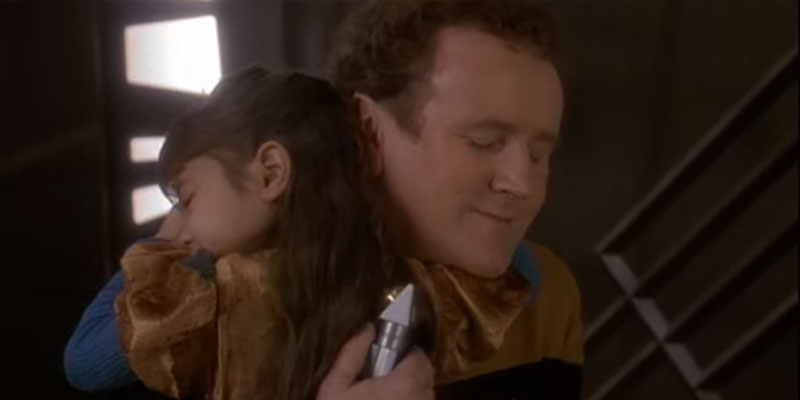
Episodes like these are important, especially when Star Trek’s idea of hopefulness comes into play. The best way to fight despair is with hope.
So I suffer from depression. Always have. And very likely always will. But, I manage it with healthy outlets, my support network and all sorts of other tips and tricks. I strongly relate to O’Brien in this episode. The pattern in his life is one of struggling to cope with something that has fundamentally re-written who he is. And I could spend a good deal of time relating these ideas and concepts that I feel that is represented in his arc through the story.
One of my big things is being frank about my depression. I try not to shutter it away too much because otherwise, it becomes this odd little taboo you don’t talk about. And then it becomes even harder to talk about. So I keep it out in the open. I de-stigmatise it to myself and others. For a while, I didn’t and I kept it super bottled up and this lead to what I affectionately call the “Whoopsy bad day”, that title is a bit glibber that it has any right to be, but that’s what I call it.
If it’s open and on the table, people then know to ask me if I’m doing okay. And more importantly, if it’s out on the table, I can look at it and decide when it’s time to ask for help. Know yourself and be well.
In Conclusion
So, what does this all have to do with wrapping it all together? Well, as I said, you combat despair with hope. You combat an episode about depression with the knowledge that you will get better. In this episode, while pulling into one to the lowest moments a character has ever been in Trek, we get to see the hope that breaks him free from that moment. Representation for people of all walks of life is important, no more important than those who are struggling. DS9’s episode Hard Time is a masterstroke of not just showing us hurt. But showing those who are hurting that we can get better.
I don’t think it is possible in that way to say much more. Perhaps the words of Edith Keeler from the classic series episode “City on the Edge of Forever”
-And the men that reach out into space will be able to find ways to feed the hungry millions of the world and to cure their diseases. They will be able to find a way to give each man hope and a common future. And those are the days worth living for.
Take care out there….
VIDEO – Trigger warning for mental health, assault, falsified realities, post-traumatic stress disorder, and suicide. If that’s something you’re uncomfortable with, maybe sit this one out, it’s a bit of a ride.
If you’re struggling right now, there are loads of people and organisations who are willing to listen and get you the help you need. We have compiled the following list of helplines and charities around the globe that specialise in mental health for all people.
- UK – https://mentalhealth-uk.org/
- UK – https://www.mentalhealth.org.uk/
- UK – https://www.samaritans.org/
- LGBTQ UK – https://www.mind.org.uk/information-support/tips-for-everyday-living/lgbtiqplus-mental-health/about-lgbtiqplus-mental-health/
- Canada & London (UK) – https://queerevents.ca/community-resources/crisis-hotline-support/lgbtq2-youth-line
- Canada – https://www.crisisservicescanada.ca/en/looking-for-local-resources-support/
- Canada – https://www.canada.ca/en/public-health/services/mental-health-services/mental-health-get-help.html
- USA – https://www.samhsa.gov/
- USA – https://www.nimh.nih.gov/health/find-help/
- Australia – https://mhaustralia.org/
- New Zealand – https://mentalhealth.org.nz/
Remember reaching out and asking for help is okay, and it is the most important step. Take care, and be well.

